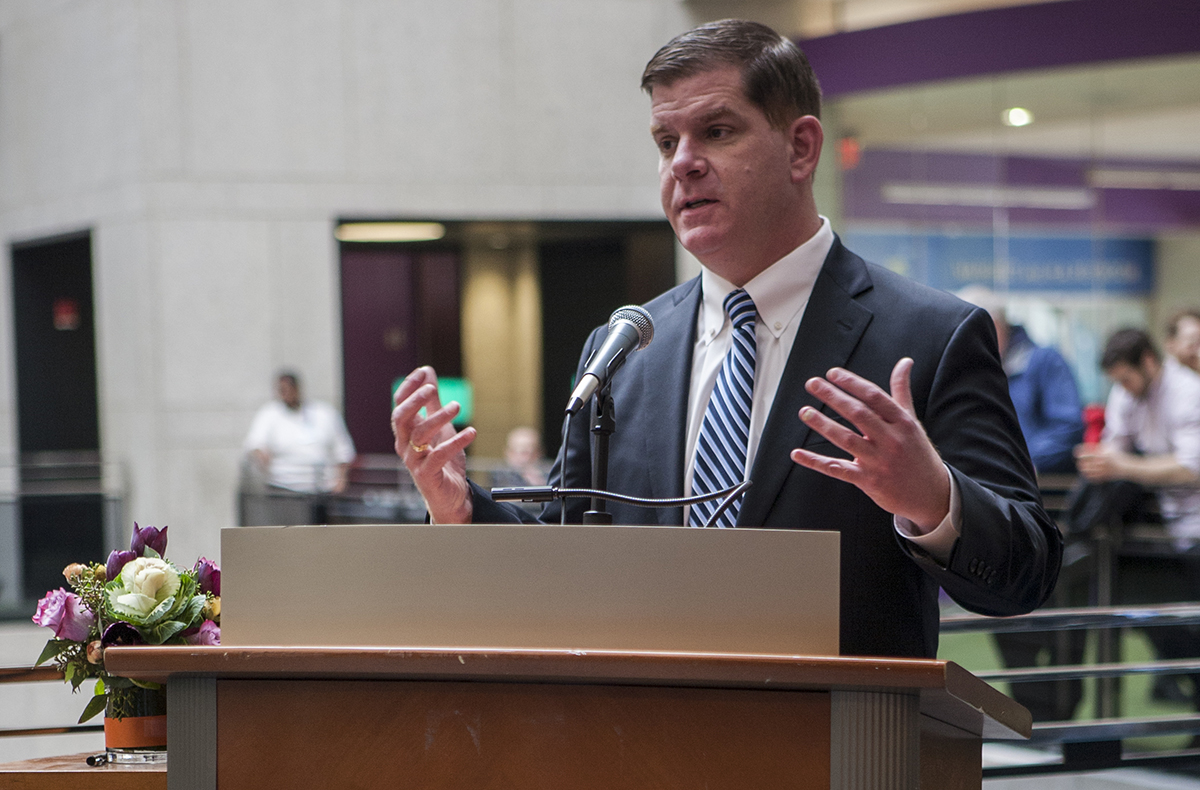Marty Walsh Made Housing the Focus in State of the City

Photo by Olga Khvan
One of the biggest challenges facing Mayor Marty Walsh’s administration is addressing the city’s soaring housing costs. So it was no surprise that Walsh made the past, present, and future of housing in Boston one of the major focuses of his second State of the City speech. If you’re still confused about just what Walsh’s plan is going to do for your rent, we’re here to help. But those hoping for actual rent decreases probably shouldn’t get their hopes up. That’s probably never happening (sorry), but some of the things he addressed in his speech could slow rent increases, and make life easier for renters. Here’s a breakdown of the policy changes he mentioned:
In 2014, City Hall drastically revised part of Boston’s housing ordinance to help tenants who lose their apartments to condo conversion. Boston apartment tenants now receive $6,000 to cover the cost of finding a new home when their housing is converted to condominiums. Tenants at risk of losing their apartment now need to receive at least one year of advance notice before their condo conversion occurs. Under the new rules, tenants now have the right to purchase the apartment if they can match the public price of the condominium.
The mayor also highlighted something called inclusionary development, a zoning regulation that requires developers to contribute to the city’s stock of affordable housing. Developers have three options for complying with the city’s inclusionary development regulations: build affordable housing onsite as part of their project, build it offsite somewhere else in the city, or contribute to Boston’s affordable housing fund.
This regulation has faced criticism from housing advocates for not being tailored to neighborhoods and allowing developers to avoid building any actual affordable housing units. After a year of listening to developers and activists, Walsh changed the regulations in December 2015 to address their concerns.
The city is now divided into three separate development zones in an effort to raise extra money for affordable housing from high-end development while facilitating development of new housing in neighborhoods that are seeing less development. Urban planning experts expect the changes to result in developers building more on-site affordable housing units in new projects.
Walsh announced on Tuesday that Dudley Square in Roxbury and Glover’s Corner in Dorchester are the focus of a new Boston Redevelopment Authority planning study, a major step toward neighborhood revitalization. The new studies by the BRA are part of a broader citywide effort to plan the future of Boston’s neighborhoods while identifying areas for new middle income and affordable housing. These studies help incorporate the concerns of communities and residents into the long-term development of their neighborhoods. The BRA is in the middle of conducting similar planning studies for parts of South Boston, Jamaica Plain, and Roxbury.
Walsh also announced the creation of something called the Office of Housing Stability. “It’s going to develop resources for tenants, incentives for landlords who do the right thing, and partnerships with developers to keep more of our housing stock affordable,” he explained.
It’s too early to say how useful this office will be, since some of things Walsh discussed, such as “resources for tenants,” already exist in some form in the non-profit world. A city hall spokesperson could not say who will lead the new office.


